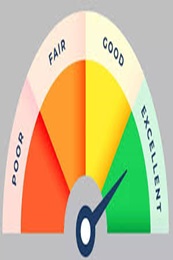Does Checking CIBIL Score Frequently Lower Your Credit Points?
April 13, 2025

Imagine you're planning to apply for a home loan, a credit card, or even a car loan. Naturally, you want to ensure your CIBIL score is in good shape before proceeding. But then, you hear a common myth: Checking your CIBIL score frequently will lower your credit score! This concern makes many people hesitant to monitor their credit health. But is it really true?
In this article, we will debunk this myth, explain the difference between hard and soft inquiries, and provide expert insights on how often you should check your CIBIL score.
Does Checking CIBIL Score Affect Your Credit Points?
The simple answer is: No, checking your CIBIL score yourself does not lower your credit points. When you check your own credit score, it is considered a soft inquiry, which has no impact on your creditworthiness. However, if a bank or financial institution checks your score while evaluating your loan or credit card application, it is classified as a hard inquiry, which may have an effect on your credit score.
Understanding the difference between hard and soft inquiries is crucial for maintaining a healthy credit profile.
What is a Hard Inquiry?
A hard inquiry occurs when a lender or financial institution checks your credit score to assess your eligibility for a loan or credit card. This inquiry happens when you apply for:
- A Business Loan or Home Loan
- A Credit Card
- A Two-Wheeler Loan
- Any other form of credit facility
Since multiple hard inquiries in a short span suggest a higher credit risk, they can slightly lower your CIBIL score. Frequent loan applications within a short period may make lenders perceive you as financially unstable, reducing your chances of approval.
What is a Soft Inquiry?
A soft inquiry happens when you check your own CIBIL score or when a company conducts a background credit check without you applying for a loan or credit card. Some common examples of soft inquiries include:
- Checking your own CIBIL score via a credit bureau’s website
- Pre-approved loan or credit card offers sent by banks
- Employer background checks related to financial trustworthiness
Soft inquiries do not impact your credit score. In fact, checking your score regularly helps you stay informed and take corrective action if needed.
How Do I Know Who is Checking My CIBIL Score?
You can monitor who has checked your credit score by obtaining a CIBIL Report. The report includes a section called “Enquiry Information” which lists all the hard inquiries made by lenders. If you notice an unauthorized inquiry, you should:
- Contact CIBIL to verify the inquiry details.
- Raise a dispute with the credit bureau if you find an error.
- Be cautious about fraud—if someone is making inquiries without your consent, it could be a sign of identity theft.
Keeping an eye on your report ensures that your credit score remains accurate and that unauthorized checks don’t go unnoticed.
How Often Should You Check Your CIBIL Score?
Experts recommend checking your CIBIL score at least once a month or before applying for a loan or credit card. Regular checks help you:
- Detect errors or discrepancies early
- Identify any unusual or unauthorized inquiries
- Track your credit health and take steps to improve it if necessary
- Plan for a major loan application by ensuring your score is strong
Since checking your own score does not lower it, there is no harm in monitoring it frequently.
Final Thoughts
Your CIBIL score is a key factor in determining your financial credibility. While hard inquiries from lenders may impact your score, checking your own CIBIL score does not affect it in any way. In fact, regular monitoring can help you stay in control of your financial health and take corrective actions when needed. If you are planning to apply for a loan or credit card, be mindful of hard inquiries, avoid applying to multiple lenders at once, and always stay updated on your credit report.
Kick-start your financial journey with Ujjivan. Save more with our high-interest Savings Account and Deposit products. Need cash for your business or personal needs? Apply for MSME Loans or Micro Loans with us – we offer competitive rates and quick disbursal. We also offer vehicle loans and home loans tailored for your unique requirements. Experience a smooth banking journey with Ujjivan SFB!
FAQs
1. Does checking my CIBIL score frequently harm my credit score?
No, checking your CIBIL score yourself is a soft inquiry and does not affect your credit score. In fact, it helps you track your financial health and detect errors early.
2. How do I check my CIBIL score for free?
No, checking your own credit report is a soft inquiry and does not impact your score. However, when banks or banks check your report during a loan application, it counts as a hard inquiry and may lower your score.
3. How long do hard inquiries stay on my CIBIL report?
Hard inquiries typically remain on your CIBIL report for up to two years, but they only impact your credit score for about six months to one year.
4. Can I remove a hard inquiry from my CIBIL report?
If a hard inquiry was made without your authorization or due to fraud, you can raise a dispute with CIBIL and request its removal.
5. How many points does a hard inquiry reduce from my CIBIL score?
A single hard inquiry may reduce your score by 5 to 10 points, but multiple inquiries within a short period can cause a more significant drop.
6. Why is my CIBIL score not increasing even after timely payments?
Your score may not increase if you have a high credit utilization ratio, too many loans, or a short credit history. Reducing debt and diversifying credit can help.
7. Can a rejected loan application affect my CIBIL score?
A rejected loan does not directly impact your CIBIL score, but the hard inquiry made by the lender can lower your score slightly, especially if you apply to multiple lenders.
8. How often should I check my CIBIL score?
It is advisable to check your CIBIL score at least once a month to track your credit health and identify any potential errors or fraud.
9. What should I do if my CIBIL score suddenly drops?
First, review your CIBIL report for errors, missed payments, or fraudulent activities. If needed, pay down debts, reduce credit utilization, and avoid applying for multiple loans.
10. Can checking my CIBIL score improve my credit score?
Checking your CIBIL score itself does not improve it, but staying informed allows you to take corrective actions like timely payments and reducing credit utilization to enhance your score over time.
Latest Blogs

Does Checking CIBIL Score Frequently Lower Your Credit Points?
April 07, 2025
Imagine you're planning to apply for a home loan, a credit card, or even a car loan. Naturally, you want to ensure your CIBIL score is in good shape before proceeding.

Explained: Can NRIs Buy an Agricultural Land in India?
April 03, 2025
Real estate investment is often a top priority for Non-Resident Indians (NRIs) looking to retain strong financial ties to India.

How to Improve Your CIBIL Score from 600 to 750: A Step-by-Step Guide
April 02, 2025
Your CIBIL score is like your financial reputation—banks check it before approving loans or credit cards. If your score is hovering around 600, you might face difficulties in securing credit or may get loans with higher interest rates.

What Happens When You Leave Your Savings Account Unused?
April 01, 2025
Imagine waking up one day to find that your hard-earned money is locked away and inaccessible. Sounds stressful, right? This is precisely what happens when you leave your Savings Account inactive for too long.

Unified Pension Scheme (UPS): Everything You Need to Know
March 29, 2025
The Pension Fund Regulatory and Development Authority (PFRDA) has announced the Unified Pension Scheme (UPS) will be operational from April 1, 2025.



